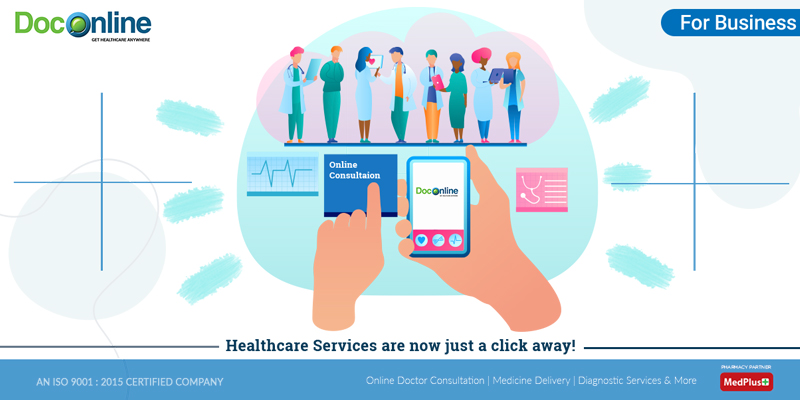The Impact of Subscription Based Healthcare on Conventional Medical Practices
The Impact of Subscription Based Healthcare on Conventional Medical Practices
Blog Article
The Increase of Subscription-Based Healthcare and Its Effect On Individual Treatment
As health care progresses, the subscription-based version is acquiring traction, guaranteeing to revolutionize person care by providing predictability and access. The capacity for these models to reshape medical care shipment elevates pushing questions regarding their lasting sustainability and inclusivity. Are these subscription services the future of health care, or do they run the risk of leaving susceptible populations behind?
Recognizing Membership Healthcare Designs
Comprehending the concept of membership health care designs involves checking out a transformative strategy to medical services that emphasizes cost and accessibility. These models, typically referred to as direct medical care (DPC) or concierge medication, have actually become ingenious alternatives to conventional fee-for-service health care systems. Registration medical care allows clients to pay a fixed month-to-month or yearly charge for a specified set of clinical solutions, which may include limitless office sees, routine check-ups, and basic lab examinations, without the demand for standard insurance policy payment.
The structure of subscription medical care designs is made to enhance patient treatment by removing third-party payers and complicated payment codes, thereby minimizing administrative burdens. Healthcare companies can concentrate much more on client care, cultivating stronger patient-provider relationships. This design likewise advertises preventative care by motivating regular check outs, as the financial challenge of per-visit costs is eliminated.
The membership model typically empowers doctor to handle smaller sized individual panels, permitting more customized care. It aligns monetary incentives with person health and wellness results, as suppliers are encouraged to maintain client fulfillment and health. In general, understanding subscription medical care designs requires acknowledging their potential to improve how treatment is supplied and accessed.
Benefits for Providers and individuals

With a constant income stream, healthcare professionals can dedicate more time to each person, leading to a more comprehensive and customized treatment experience. The focus on preventive care within subscription plans can lead to far better client end results and minimized long-term health care costs.
Problems and obstacles
While subscription-based healthcare versions present numerous advantages, they likewise include a set of difficulties and worries that must be resolved. Initially, access stays a considerable issue, as these models usually target individuals who can afford month-to-month fees, potentially omitting low-income populations. This increases honest concerns concerning fair accessibility to health care solutions. In addition, the diverse nature of membership plans can result in complication among individuals concerning coverage specifics, potentially leading to unmet assumptions or poor care.
Financial sustainability of subscription-based versions is another issue. Companies have to stabilize the fixed income from memberships with the variable costs of healthcare solutions, which may fluctuate as a result of unforeseen medical demands. This can develop stress to restrict solutions or increase charges, potentially affecting person fulfillment and care quality.
In addition, governing oversight of subscription-based healthcare models is still evolving. Addressing these obstacles is essential for the fair and effective execution of subscription-based healthcare.
Effect On Patient-Doctor Relationships
One considerable influence of subscription-based healthcare designs on patient-doctor connections is the possibility for boosted continuity and customized care. By embracing a subscription design, check my source physicians can handle a smaller sized patient panel, enabling even more devoted time with each person. This raised availability cultivates a deeper understanding of a person's case history, way of life, and choices, making it possible for a lot more customized treatment plans and treatments.

Nonetheless, it is essential to identify that while subscription-based designs might benefit those that can manage them, they can unintentionally widen health care variations. Individuals that are unable to join these versions could experience decreased accessibility to customized treatment, potentially affecting their partnerships with doctor. Hence, while the membership design provides appealing benefits for patient-doctor connections, it likewise presents obstacles that need to be dealt with to make sure equitable health care access.
Future of Healthcare Accessibility

The role of technology can not be forgotten in this change. Telemedicine systems and digital health and wellness documents help with smooth interaction between clients and medical care carriers, damaging down geographical and logistical barriers. Furthermore, improvements in synthetic knowledge and data analytics can better customize healthcare by anticipating person demands and optimizing treatment plans.
However, the future of medical care gain access to additionally presents obstacles, such as making certain equity throughout various socio-economic teams. Policymakers and medical care providers need to work together to link the electronic divide, ensuring that subscription-based versions continue to be cost effective and comprehensive. As these systems mature, they hold the guarantee of making health care a lot more easily accessible, reliable, and patient-centric.
Final Thought
Subscription-based health care versions are improving individual care by providing a steady expense framework and improving accessibility. These models go to my blog reinforce patient-provider relationships through customized treatment and regular check outs, highlighting preventative health. Despite these advantages, obstacles such as access concerns for low-income populations and the need for fair medical care remedies persist. The surge of subscription-based medical care encourages positive individual involvement, which has the potential to enhance individual end results and contentment, signaling a transformative shift in medical care shipment.
As health care progresses, the subscription-based model is gaining traction, guaranteeing to reinvent client care by supplying predictability and availability.Subscription-based health care models offer distinctive advantages for both patients and providers, improving the total medical care experience.As health care systems develop, the future of medical care access regularly pivots on the combination of innovative models and modern technologies.Subscription-based healthcare versions are improving patient treatment by giving a steady price structure and enhancing access. The increase of subscription-based health care encourages aggressive patient involvement, which has the possible to boost patient results and fulfillment, indicating a transformative change in healthcare shipment.
Report this page